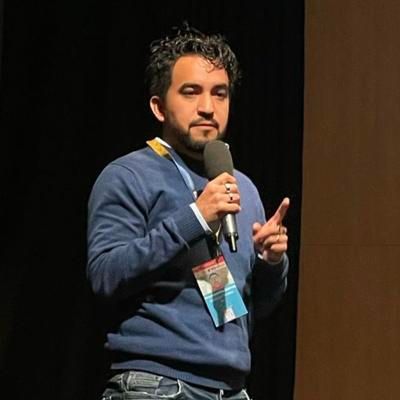Next post, how I recovered the database of SSSD when I deleted the whole path /var/lib/sss/ by accident. 🥲
22.10.2025 20:59 — 👍 0 🔁 0 💬 0 📌 0

an illustration of a woman sitting in front of a laptop using a cell phone
ALT: an illustration of a woman sitting in front of a laptop using a cell phone
Moreover, to enable secure external access, I configured a bridge acting as a switch to assign static IPs to the login node and a bastion node.
The bastion node will verify and admit external connections, enforcing two-factor authentication for enhanced security. All of this powered by #freeIPA
22.10.2025 20:59 — 👍 0 🔁 0 💬 1 📌 0

a diagram of setting up a small office network with a hongzilla logo
ALT: a diagram of setting up a small office network with a hongzilla logo
Additionally, I have decided to isolate the computing nodes network from the university network as a very basic attempt to reduce latency in message communications.
Something more or less like this 👇🏼
22.10.2025 20:59 — 👍 0 🔁 0 💬 1 📌 0
Cluster Update
We are nearing the completion of the restart process for all services. Here is the current status of the login node services:
🟢 FreeIPA
▪️ LDAP
▪️ SSSD
▪️ Kerberos
🟢 Munge
🟡 SLURM
🟢 AutoNFS
🟢 Modules
🔴 Grafana
🔴 Prometheus
22.10.2025 20:59 — 👍 0 🔁 0 💬 1 📌 0
By the way, the fortran post 👇🏼
bsky.app/profile/ogmd...
I remember I prepared this nice ilustration about #fortran but I neves share it.😅
Well... here it go
22.10.2025 00:14 — 👍 0 🔁 0 💬 0 📌 0
However, I also need to remember that last July month, marked one year since I was forced to leave my previous PhD program 😖. That unfortunate event deserves its own post, and maybe I’ll start sharing that story soon...🥺
#phdlife
22.10.2025 00:04 — 👍 0 🔁 0 💬 0 📌 0
The last time I posted here, I shared some thoughts about #Fortran, and I intended to talk about my #PhD journey. The first year has been tough, but I managed to overcome many challenges, from field work to #CAD modeling, I complete tasks satisfactorily.
22.10.2025 00:04 — 👍 1 🔁 0 💬 1 📌 0
Otro dia a la espera de que llegue el SSD que necesito para restablecer el nodo login.
Pienso hacer un post cortito sobre el proceso y otro mas detallado, allá en #mastodon 🦣
02.10.2025 23:38 — 👍 0 🔁 0 💬 0 📌 0
Después de dejar listo el clúster MAGMA, montado a base de mucho ensayo, error y afinado de Slurm, hoy el nodo login dijo basta. Todavía corría sobre un HDD que ya habrá cumplido su ciclo. Ahora toca retroceder un paso, montar SSD y RAM nuevos, y restaurar el acceso al clúster. 🔧💻
28.09.2025 15:26 — 👍 0 🔁 0 💬 0 📌 0

a man is holding a woman in a black dress
ALT: a man is holding a woman in a black dress
Hoy retome mis clases de Catalán, después de que la pandemia me arruinara mi primer curso oficial, hace ya 5 años. Espero terminarlo esta vez, sin ningún cisne negro
16.09.2025 18:32 — 👍 0 🔁 0 💬 0 📌 0

Strategy Action Plan GIF
ALT: Strategy Action Plan GIF
Apenas llegue a esta red y me ausente un tiempo. De un momento a otro me desborde en deberes y actividades propias del doctorado. Pero ahora estoy aqui con mucho que contar y compartir.
13.09.2025 14:04 — 👍 0 🔁 0 💬 0 📌 0
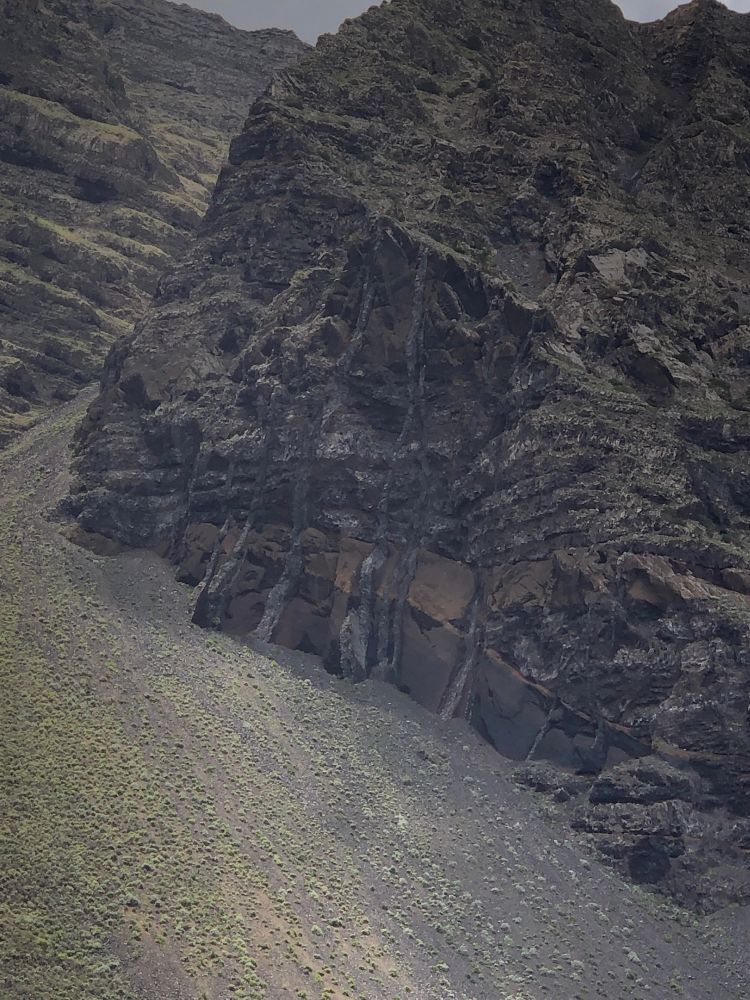
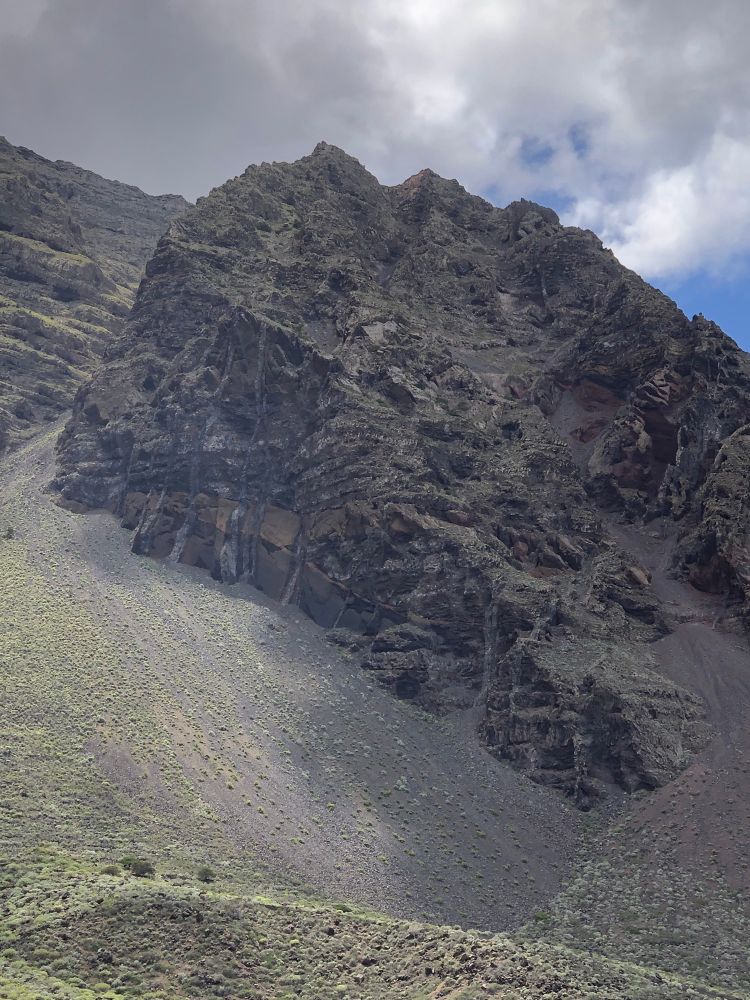
Magmatic intrusions look amazing 🌋
#canaryislands
10.05.2025 09:48 — 👍 0 🔁 0 💬 0 📌 0
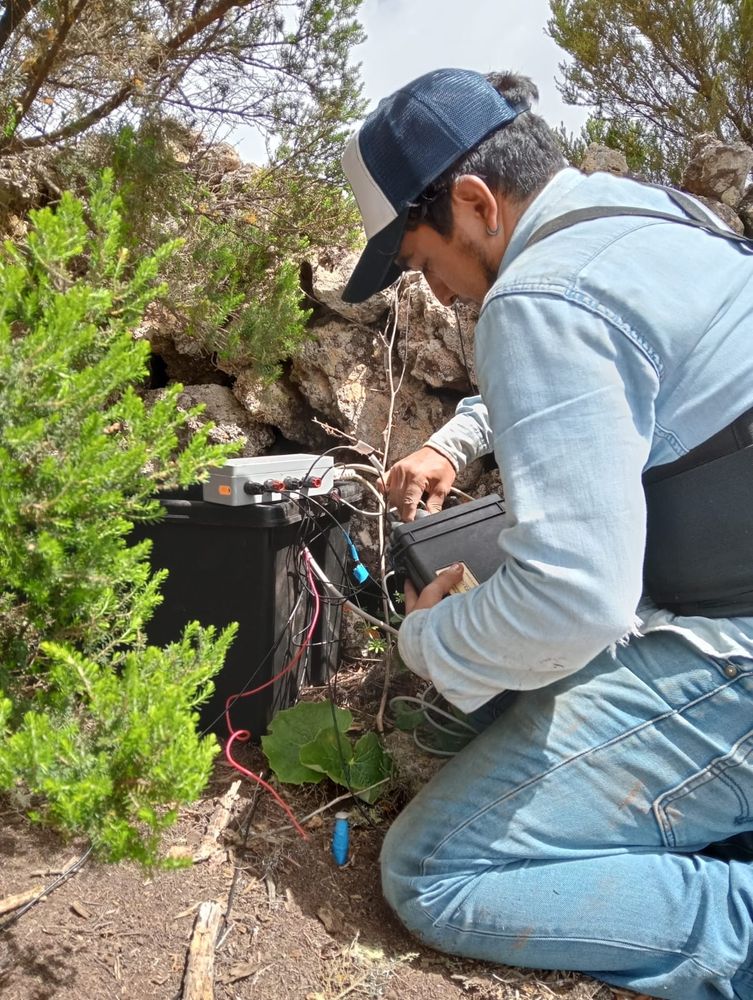
Another day at #CanaryIslands field work, preparing the #magnetoteluric sounding wire conections…
I know, it seems like I know what I am doing 😜
#geophysics #vulcanology
08.05.2025 18:46 — 👍 1 🔁 0 💬 0 📌 0
This week I'm out doing field work, and it's taking me more time than I expected to share a new thread about computational #electromagnetics here soon.
I hope to post it shortly
#CEM
06.05.2025 23:56 — 👍 0 🔁 0 💬 0 📌 0
😃🤞
26.04.2025 21:15 — 👍 2 🔁 0 💬 0 📌 0
Hey Bruno!
Yeah he brings great contributions to Fortran language and community.
On the other hand, I hope there in BSC, you will have the opportunity to use codes like Alya to work with Fortran.
26.04.2025 21:13 — 👍 1 🔁 0 💬 1 📌 0
For the past 3 months, I’ve been attending an #NPTEL course on Scientific #HPC, with lectures delivered by IIT Bombay.
Tomorrow is the big day: my proctored exam!
I’ve studied as much as I could. 😰
Let’s see if I can earn the certification.
26.04.2025 19:46 — 👍 1 🔁 0 💬 0 📌 0
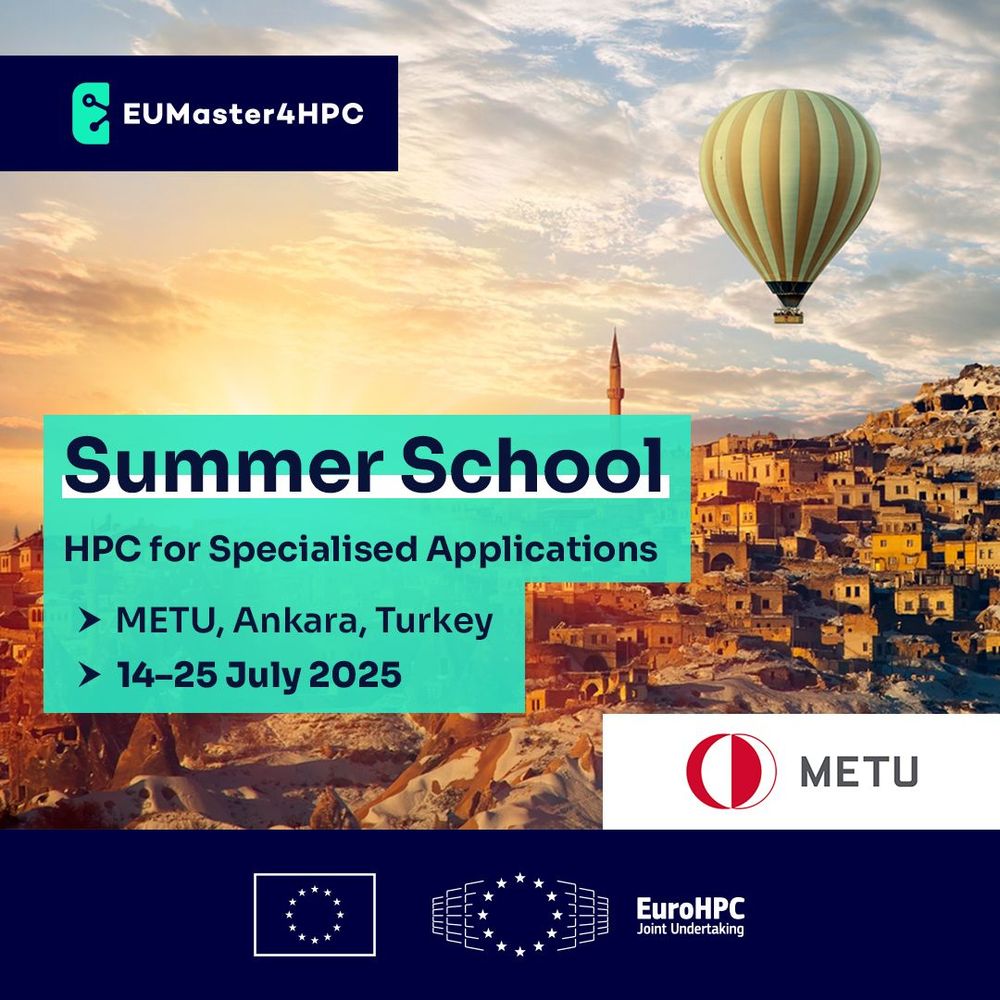
One week left to apply for the EUMaster4HPC Summer School 2025! From 14–25 July at METU, Ankara (TR), explore #HPC for specialised applications in Data Science, Chemistry, Aeronautics & more. Includes expert lectures, industry insights, and social events. Learn more: eumaster4hpc.eu/summer-schoo...
23.04.2025 10:27 — 👍 4 🔁 1 💬 0 📌 0
As a #geophysicist.
I’ve done fieldwork in ERT, GPR, MASW, and VES but always avoided magnetotellurics. It just didn’t click with me.
Now life is funny: in a few days, I’ll be doing my first MT surveys, guided by my #PhD advisor.
Sometimes, the path you resist is exactly where you’re meant to grow
25.04.2025 00:10 — 👍 1 🔁 0 💬 0 📌 0
Thank you!
Yeah I responded the email. Also I received and checked the next ones sent by you, thank you so much!
24.04.2025 17:01 — 👍 0 🔁 0 💬 0 📌 0
I just discovered your account, and I'm very interested in attending the course. The registration is now closed, but I sent an email asking for a slot. Is there any chance I could get one?
24.04.2025 15:57 — 👍 2 🔁 0 💬 1 📌 0
In the end, modern languages like 🐍 have taken most of the attention in the scientific community.
However, Fortran is still alive and continuously evolving. With great community.
What’s your take on the “old vs. modern”. Have you worked with Fortran too?
[5/5]
Thanks for reading :)
24.04.2025 10:17 — 👍 2 🔁 0 💬 2 📌 0
Since then, I've stood by this: Fortran is not dead. It updates, improves, and stays relevant especially in scientific computing where raw performance matters.
It may not be the prettiest language (in fact it is) , but it’s robust, fast, and efficient. It gets the job done without drama.
[4/5]
24.04.2025 10:17 — 👍 3 🔁 0 💬 1 📌 0
I first encountered Fortran during my undergrad studies (2010). Many years later, I picked it up again to develop a 2.5D transient electromagnetic modeling code for geophysical applications. I worked on it for the last 4 years and that project shaped the way I approach simulation today.
[3/5]
24.04.2025 10:17 — 👍 2 🔁 0 💬 1 📌 0
* Object-oriented code
* Use modules and submodules
* Implement native parallelism with coarrays
* Build #HPC algorithms.
* Write #CUDA codes with #CudaFortran
* Target modern architectures with performance in mind.
* Even some #ANN implementation are based on this amazing language
[2/5]
24.04.2025 10:17 — 👍 4 🔁 0 💬 1 📌 0
Let's talk about #Fortran and why so many people think of it as a old language. Maybe because it started in the 1950s. Or maybe because it doesn’t look like Python.
But here’s the thing: Fortran has evolved.
Today, you can write code such as:
[1/5]
24.04.2025 10:17 — 👍 21 🔁 4 💬 3 📌 3
Me han dado unas ganas irresistibles por volver a construir en #C++
Comenzar con, por ejemplo,
Exportar mi codigo #FEM en 2.5D de #FORTRAN a #C++
🤩
14.02.2025 14:05 — 👍 1 🔁 0 💬 0 📌 0
Recien aterrizando 🦋
PROGRAM BLUESKY
PRINT *, "Exploring a new decentralized future..."
END
Hello bluesky!
Veamos de que va esto 🔭
13.02.2025 01:38 — 👍 0 🔁 0 💬 0 📌 0
Col·laborar i compartir per millorar el sistema universitari i de recerca.
csuc.cat/ca
Intelligente Systeme für eine zukunftsfähige Gesellschaft.
Aktuelles aus der #UniStuttgart
https://www.uni-stuttgart.de/impressum/
We run the "Earth Scientists" feed — pester this account if you want to join
https://bsky.app/profile/did:plc:lpl45lei6abqpvmet5htdbtb/feed/aaakc72k5sgcs
(brought to you by @louis.moresi.info)
Professor of Computational Geodynamics, Geophysics, Fluid Dynamics and all that stuff at the Australian National University. Interested in virtual plate tectonics (Earth and elsewhere), earthquake dynamics, groundwater, rivers…
orcid: 0000-0003-3685-174X
News and information from the European Commission. Social media and data protection policy: http://europa.eu/!MnfFmT
We deliver world-class, high-end supercomputing services for Flemish business, industry, research and innovation.
The European Centre of Excellence for Engineering Applications, co-funded by the European Union and the EuroHPC JU. www.excellerat.eu
NAGT works to improve the teaching of the Earth sciences by providing teaching resources, professional development events, and high-quality publications.
https://nagt.org/index.html
Tips about Fortran. I also post on X/Twitter and at Fortran Discourse. Past tips are at https://github.com/Beliavsky/FortranTip
Accelerating HPC Skills Across Europe – One Platform, Endless Potential
🌐:https: https://www.hpc-spectra.eu
Linkedin: https://www.linkedin.com/company/hpc-spectra
We educate future leaders in HPC | eumaster4hpc.uni.lu
Funded by EuroHPC JU, the EUMaster4HPC consortium aims to define the body of knowledge in High-Performance Computing. Learn more about the project at eumaster4hpc.uni.lu
Compte oficial de la Facultat de Matemàtiques i Informàtica de la Universitat de Barcelona.
🔗 mat.ub.edu/
Facultat de la Universitat de Barcelona (@ub.edu) on s'imparteixen els graus de #Geologia 🌋 i #CiènciesDelMar 🌅, i diversos màsters i postgraus relacionats amb aquestes disciplines
Entertaining & educational conversations about science, tech, + more. Hosted by Ira Flatow and Flora Lichtman. From WNYCStudios.
AGU is a global community supporting more than half a million advocates and professionals in Earth and space sciences.
We support national and EU researchers from science and industry by providing HPC services, platforms, and technologies.
Formerly known as Vienna Scientific Cluster (VSC)
https://asc.ac.at
• Most powerful supercomputers in Austria
• Research, education, user support
• HPC & AI training: https://events.asc.ac.at
Passionate about Supercomputing / High-Performance Computing (HPC) - doing HPC since more than 30 years and teaching HPC since more than 10 years - grown up as a physicist - comments and opinions are my own - she/her - https://asc.ac.at/training
The Computing Sciences Area at Berkeley Lab develops cutting-edge computational methods, leverages HPC, and applies data science to drive innovation. Our four divisions—AMCR, SciData, NERSC, and ESnet—advance research in AI, math, energy, and more.
European Research Council, set up by the EU, funds top researchers of any nationality, helping them pursue great ideas at the frontiers of knowledge. #HorizonEU







